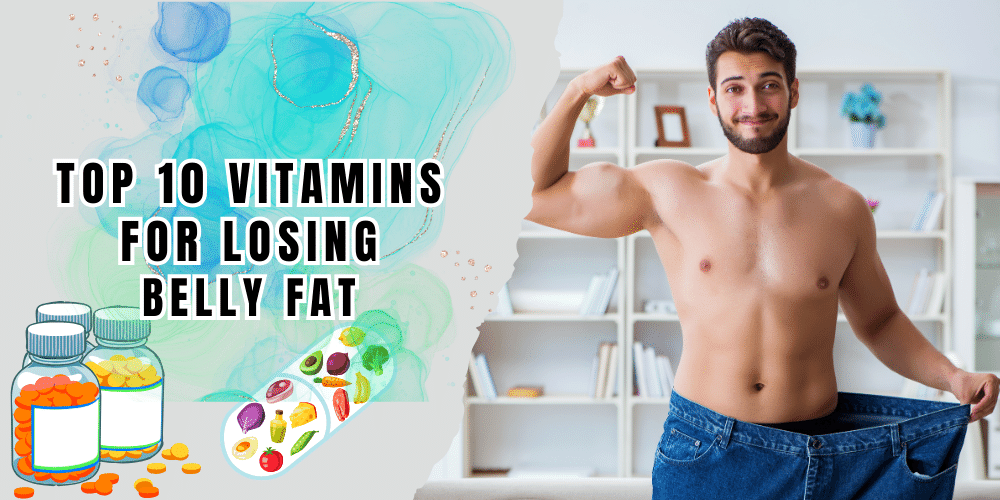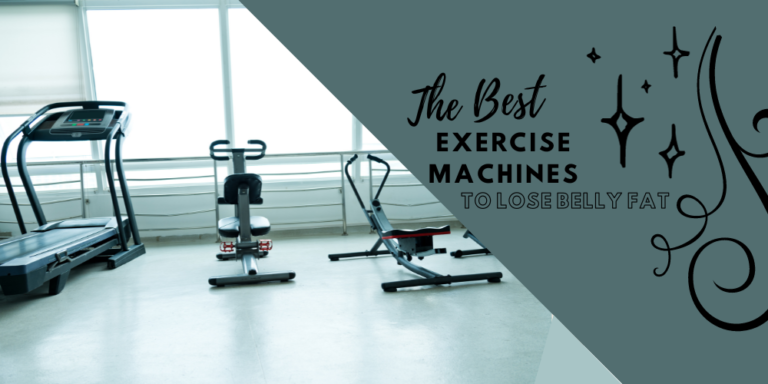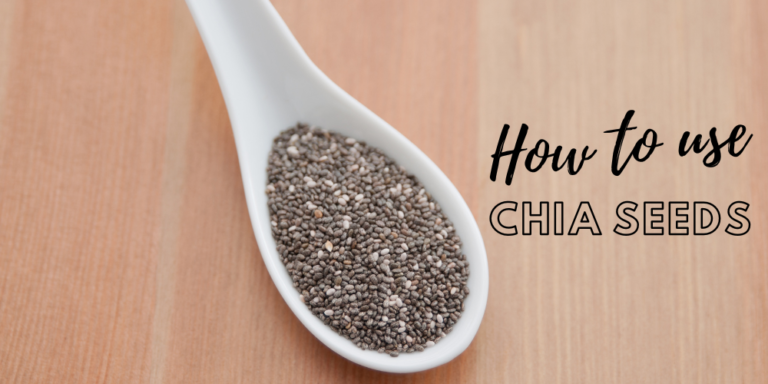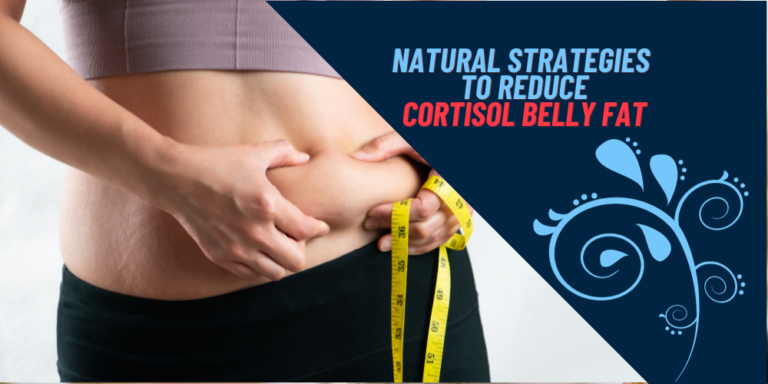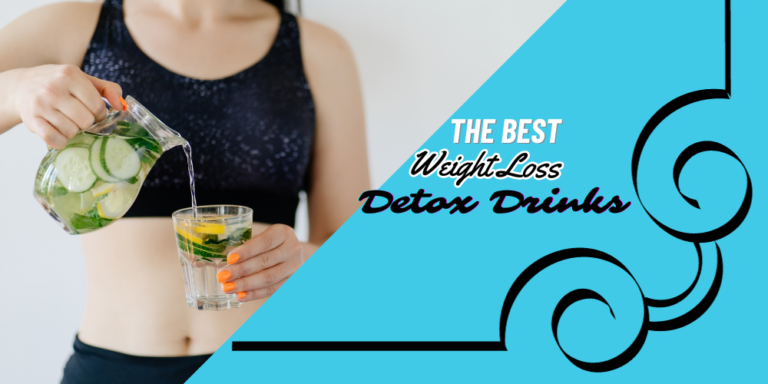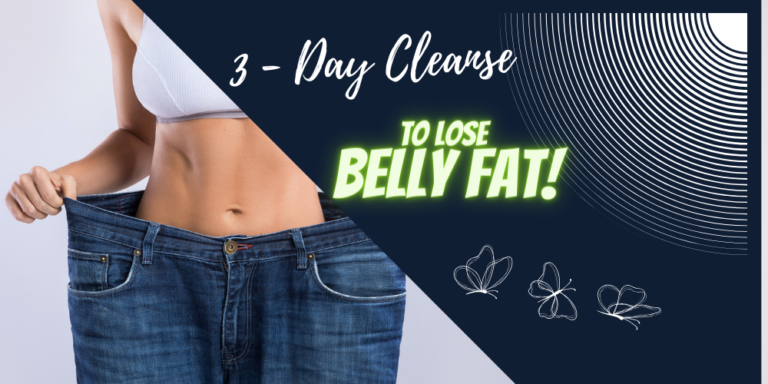Top 10 Vitamins for Losing Belly Fat in 2024!
If you are asking yourself, what vitamins are good for losing belly fat, then you are in the right place. There are so many vitamins and dietary supplements out there that claim to be the best for this and that. The truth is what works well for me may not work as well for you. So, I decided to write this article about the best vitamins for weight loss.
I will also let you know more about each vitamin’s pros and cons, what other benefits they may have and who should be taking them. For example, if you are a 20-year-old female trying to lose belly fat, you should not take ashwagandha which boosts testosterone. However, if you are a 50-year-old man who has low testosterone this may be exactly what you need to lose body fat.
Enough of the small talk, lets dive into what you came here for.
What are the best vitamins to lose belly fat?
1. Vitamin D

Losing belly fat involves more than just hitting the gym and cutting calories; it requires a strategic approach that includes nutritional support. Vitamin D, often known as the “sunshine vitamin,” plays a crucial role in overall health and helps promote weight loss. Here’s why considering Vitamin D supplementation could be beneficial when trying to lose weight.
Benefits of Vitamin D:
Boost metabolism: Vitamin D is known to support metabolic function, helping you use your calories more efficiently, resulting in a healthy metabolism.
Fat oxidation: Research suggests that adequate Vitamin D levels may influence fat cells and their ability to store and release fat.
Insulin Sensitivity: Vitamin D has been associated with improved insulin sensitivity, which is crucial for maintaining balanced blood sugar levels and preventing excess fat storage.
Appetite Control: Some studies suggest a potential role of Vitamin D in reducing appetite, helping individuals on their weight loss journey.
How to Get Vitamin D:
Sun Exposure: The primary natural source of Vitamin D is sunlight. Spending time outdoors, especially during midday, can help the body produce Vitamin D.
Dietary Sources: Include Vitamin D-rich foods in your diet, such as fatty fish (salmon, mackerel), fortified dairy products, egg yolks, and mushrooms.
Supplements: If sunlight and dietary sources are insufficient, consider Vitamin D supplements.
Who Would Benefit Most:
People with Limited Sun Exposure: Those living in regions with minimal sunlight or individuals with indoor lifestyles may benefit from Vitamin D supplementation.
Overweight and Obese adults: Research shows that people with higher body fat may have low Vitamin D levels, which is why they should take vitamin D supplements, especially when trying to lose weight.
Elderly People: Aging is associated with reduced skin synthesis of Vitamin D, making it hard for them to get enough vitamin D without supplements.
When to Take Vitamin D:
Morning: Taking Vitamin D in the morning can play a role in supporting energy metabolism, providing a boost for the day.
With Meals: Since Vitamin D is fat-soluble, taking it with meals containing healthy fats can enhance absorption.
Pros of Vitamin D:
Bone Health: Vitamin D is essential for calcium absorption, contributing to strong and healthy bones.
Immune Support: Good Vitamin D levels are associated with a strengthened immune system.
Mood Regulation: Some studies link Vitamin D to improved mood, potentially benefiting overall well-being.
Weight Loss: Vitamin D can boost our metabolism, help control your appetite, so you can consume fewer calories, and help promote fat oxidation.
Cons of Vitamin D:
Toxicity Risk: Too much Vitamin D can lead to toxicity. It’s very important to follow recommended dosage guidelines and know your levels.
Interaction with Medications: Vitamin D supplements may interact with certain medications. Make sure you talk to your doctor, especially if you’re on medication.
2. Vitamin C

Nutrition plays a huge role in weight loss. Vitamin C, the immune-boosting antioxidant offers a lot more than just protection against colds. It not only boosts your immune system, but it also helps burn fat in a few different ways! It will not only help you look your best but feel your best as well.
Let’s take a look at why this will help with fat loss:
Benefits Vitamin C:
Collagen Synthesis: This is essential for collagen production, a protein that helps maintain skin elasticity and may help you have a more toned appearance.
Stress Reduction: High cortisol levels, often associated with stress, can lead to increased belly fat. Vitamin C helps regulate cortisol levels, which will lower stomach fat caused by stress.
Enhanced Fat Oxidation: Some studies suggest that Vitamin C can enhance the body’s ability to oxidize fat during moderate exercise.
Blood Sugar Regulation: Vitamin C has been linked to improved insulin sensitivity, which supports better blood sugar control and could help prevent excess fat storage.
How to Get Vitamin C:
Citrus Fruits: Oranges, grapefruits, lemons, and limes.
Berries: Strawberries, blueberries, raspberries, and blackberries are not only delicious but also packed with Vitamin C.
Leafy Greens: Kale, spinach, and broccoli are excellent vegetable.
Supplements: If you don’t get enough vitamin c in your diet then supplements can be beneficial.
Who Would Benefit Most:
High-Stress Individuals: People dealing with chronic stress everyday may benefit from Vitamin C supplementation to help regulate cortisol levels.
Those with Poor Dietary Intake: People with limited access to Vitamin C-rich foods may benefit from supplementation.
People with Insulin Resistance: Vitamin C’s positive impact on insulin sensitivity can be especially helpful for those with insulin resistance.
When to Take Vitamin C:
Throughout the Day: Divide your intake throughout the day to maintain consistent Vitamin C levels.
With Meals: Pairing Vitamin C with meals can enhance its absorption.
Pros of Vitamin C:
Immune Support: This Vitamin is renowned for its immune-boosting properties.
Antioxidant Defense: Acts as an antioxidant, protecting cells from damage caused by free radicals.
Collagen Formation: Essential for collagen synthesis, promoting healthy skin and connective tissues.
Weight loss: With lower cortisol levels, healthy insulin levels, and stored fat being burned, it makes it a lot easier to shed pounds.
Cons of Vitamin C:
Digestive Issues: High doses may cause digestive discomfort in some individuals. Start with a lower dose and gradually increase.
Kidney Stones: Excessive Vitamin C intake has been linked to an increased risk of kidney stones. Stick to recommended dosages.
3. Vitamin B complex

It’s important to make sure your body has all the proper vitamins and minerals on your weight loss journey. There are no vitamins more important than Vitamin B Complex, a group of essential water-soluble vitamins known for their role in energy metabolism. Here’s why Vitamin B Complex supplementation could be a huge help to shed belly fat:
Benefits of Vitamin B Complex:
Energy Metabolism Boost: The eight B vitamins, including B1, B2, B3, B5, B6, B7, B9, and vitamin B12, play a huge role in converting food into energy, which can help you live an active lifestyle and lose weight.
Enhanced Fat Metabolism: B-complex vitamins contribute to the breakdown of fats, helping the body use stored fat for energy.
Stress Management: B vitamins are essential for the nervous system and can also lower stress, which is often linked to weight gain, especially stomach fat.
Regulation of Blood Sugar: B vitamins help control blood glucose, contributing to stable blood sugar levels which reduces the chances of your body storing fat.
How to Get Vitamin B Complex:
Whole Grains: Brown rice, quinoa, and whole wheat products.
Lean Proteins: Meat, poultry, fish, and eggs are great sources of Vitamin B12 and other various B vitamins.
Leafy Greens: Spinach, kale, and other leafy greens contain B-vitamins, particularly folate (B9).
Nuts and Seeds: Almonds, sunflower seeds, and peanuts provide B vitamins, including B1, B2, and B3.
Supplements: People with dietary restrictions or limited access to certain foods should take supplements.
Who Would Benefit Most:
Vegetarians and Vegans: People who are on plant-based diets may benefit from B-complex supplementation.
High-Stress Individuals: B vitamins, particularly B5 and B6, play a huge role in stress management, making them valuable for individuals with high-stress lifestyles.
Old People: Aging can impact nutrient absorption, and B-complex supplementation can help these nutrient deficiencies.
When to Take Vitamin B Complex:
Morning or Early Afternoon: These vitamins contribute to energy production, making them perfect for the start of the day or midday.
With Meals: Taking B-complex supplements with meals can enhance absorption.
Pros of Vitamin B:
Increased Energy Levels: Supports energy metabolism, fights fatigue and helps you live an active lifestyle.
Stress Reduction: B vitamins are essential for the nervous system and can contribute to stress management.
Cardiovascular Health: These vitamins, such as B6, B9, and B12, play a role in maintaining heart health.
Cons of Vitamin B:
Bright Yellow Urine: Some B vitamins, like B2 (riboflavin), can cause urine to turn bright yellow. This is harmless but may be surprising.
Digestive Issues: High doses may cause digestive discomfort in some people. Start with a lower dose and gradually increase if you need too.
Interaction with Medications: Certain medications may interact with B-complex supplements. Talk to a doctor or pharmacist if you are on meds.
4. Vitamin E

Vitamin E, a powerful antioxidant, known for its skin benefits is also great for weight loss. It helps boost metabolism, supports cardiovascular health and will also help you with your workouts. This should defiantly be part of your dietary supplements or “stack” on your weight loss journey.
Here’s why Vitamin E could be a valuable addition to your journey towards losing belly fat:
Benefits of Vitamin E
Antioxidant Defense: Vitamin E is a potent antioxidant that protects cells from oxidative stress, which can be maximized during weight loss efforts like exercise.
Anti-Inflammatory Properties: Chronic inflammation is linked to weight gain, especially belly fat. Vitamin E’s anti-inflammatory effects will help both those issues, which can lead to successful weight loss.
Metabolic Support: Some studies show that Vitamin E helps support metabolic function, which is key for energy utilization.
Improved Exercise Performance: Vitamin E can enhance exercise performance, making your work outs more effective for weight loss.
How to Get Vitamin E:
Nuts and Seeds: Almonds, sunflower seeds, and hazelnuts are great sources of Vitamin E.
Vegetable Oils: Sunflower oil, wheat germ oil, and safflower oil are rich in Vitamin E.
Leafy Greens: Spinach, Swiss chard, and kale provide Vitamin E, albeit in smaller amounts.
Fortified Foods: Some foods, such as certain breakfast cereals, are fortified with Vitamin E.
Supplements: If you don’t get enough Vitamin E from your diet, supplements are available.
Who Would Benefit Most:
People on Low-Fat Diets: Vitamin E is fat-soluble, and those on low-fat diets may benefit from supplementation to make sure they are getting enough.
People with Inflammatory Conditions: Vitamin E’s anti-inflammatory properties can be a huge benefit for people dealing with chronic inflammation.
Active People: People that are more physically active than most may benefit from Vitamin E’s potential to enhance exercise performance.
When to Take Vitamin E:
With Fatty Meals: Since Vitamin E is fat-soluble, taking it with meals containing healthy fats can enhance absorption.
Consistently: Vitamin E levels in the body are best maintained when taken consistently, rather than every once in a while.
Pros of Vitamin E:
Cellular Protection: Acts as a powerful antioxidant, protecting cells from damage caused by free radicals.
Skin Health: Contributes to healthy skin, which may be particularly relevant during weight loss.
Heart Health: Vitamin E supports cardiovascular health by preventing oxidative stress in blood vessels.
Cons of Vitamin E:
Interaction with Medications: Vitamin E supplements may interact with certain medications. Consult with a healthcare professional, especially if you are on medication.
Possible Overconsumption: Taking too much Vitamin E may have negative effects. Stick to recommended dosages.
Varied Response: Peoples response to Vitamin E supplementation can vary. Regular monitoring and adjustments may be necessary.
5. Vitamin K

While Vitamin K is often associated with blood clotting and bone health, new research shows it has potential to help burn fat and lower body we. Here’s why considering Vitamin K could be a beneficial addition to your journey towards losing belly fat:
Benefits of Vitamin K:
Calcium Regulation: Vitamin K plays a huge role in calcium metabolism, contributing to bone health and potentially influencing fat metabolism.
Anti-Inflammatory Effects: Chronic inflammation is linked to gaining body weight, especially more fat around the belly.
Insulin Sensitivity: Some studies say that Vitamin K can enhance insulin sensitivity, supporting balanced blood sugar levels and reducing the risk of storing excess fat.
Bone Health: Vitamin K ensures proper calcium utilization for bone mineralization, which is crucial for overall health and physical activity during your weight loss journey.
How to Get Vitamin K:
Leafy Greens: Kale, spinach, collard greens, and broccoli are all good sources of Vitamin K.
Fermented Foods: Natto, a Japanese fermented soybean dish, is very high in Vitamin K2.
Vegetable Oils: Certain vegetable oils, including soybean and canola oil, are good sources of Vitamin K.
Meat and Dairy: Animal products such as lean meat and dairy contain Vitamin K.
Supplements: If dietary intake is not enough, Vitamin K supplements are available.
Who Would Benefit Most:
People with Bone Health Concerns: Vitamin K’s role in calcium metabolism is crucial for bone health, making it beneficial for those with bone-related concerns.
People Prone to Inflammation: The anti-inflammatory effects of Vitamin K can be life changing for those dealing with chronic inflammation, especially when exercising.
Those with Insulin Resistance: Vitamin K’s potential to enhance insulin sensitivity may benefit people with insulin resistance.
When to Take Vitamin K:
Consistently: Vitamin K levels are best maintained when taken consistently, either through dietary sources or supplementation.
Pros of Vitamin K:
Bone Health: Supports proper calcium utilization for bone mineralization.
Anti-Inflammatory: Exhibits anti-inflammatory effects that may aid in weight management.
Blood Sugar Regulation: May contribute to improved insulin sensitivity.
Weight loss: Helps metabolize fat and also helps your body’s reaction to physical activity.
Cons of Vitamin K:
Interactions with Medications: Vitamin K supplements may interact with certain medications, especially blood-thinning medications. Do your own research and talk to a doctor if you are concerned.
Varied Response: Individual responses to Vitamin K supplementation can vary.
6. Calcium
Calcium, often associated with bone health, also plays a huge role in weight loss. As you start on your journey to lose belly fat, the use of calcium-rich foods or supplements may contribute to a healthier and leaner you.
Here’s why considering calcium could be a valuable addition:
Benefits of Calcium:
Fat Cell Regulation: Healthy calcium levels help regulate fat cell storage and utilization, potentially influencing overall body composition.
Appetite Control: Some studies suggest that calcium may help control your appetite, helping people manage their food intake while losing weight.
Metabolic Boost: Calcium is involved in various metabolic processes, contributing to the efficient breakdown of fats for energy.
Bone Health: As you pursue weight loss, maintaining strong bones is essential. Calcium ensures proper bone mineralization, supporting your overall health.
How to Get Calcium:
Dairy Products: Milk, yogurt, and cheese are rich sources of calcium.
Leafy Greens: Kale, collard greens, and broccoli provide calcium, particularly for those with dietary restrictions.
Fortified Foods: Some cereals, plant-based milk alternatives, and juices are fortified with calcium.
Nuts and Seeds: Almonds and chia seeds are calcium-rich snacks.
Supplements: If dietary intake is insufficient, calcium supplements are available.
Who Would Benefit Most:
Lactose-Intolerant Individuals: For those who cannot tolerate dairy, finding alternative calcium sources becomes crucial.
Postmenopausal Women: Women post-menopause may benefit from calcium supplementation to support bone health and weight management.
People on Caloric Restriction Diets: During weight loss, caloric restriction may limit calcium intake, making supplementation beneficial.
When to Take Calcium:
With Meals: Calcium absorption is enhanced when taken with meals. Dividing the intake throughout the day is also effective.
Pros of Calcium:
Weight Management Support: Calcium can help the regulation of fat storage and metabolism.
Bone Health: Essential for maintaining strong and healthy bones, crucial during weight loss.
Appetite Control: Some studies show that calcium can help reduce appetite and cravings.
Cons of Calcium:
Interaction with Medications: Calcium supplements may interfere with certain medications. Consult with a healthcare professional, especially if you are on medication.
Constipation or Digestive Issues: Excessive calcium intake from supplements may lead to digestive discomfort. Stick to recommended dosages.
Varied Response: Individual responses to calcium supplementation can vary. Regular monitoring and adjustments may be necessary.
7. Magnesium
In the pursuit of shedding belly fat, the spotlight often falls on exercise and diet, but the role of essential minerals, such as magnesium, should not be overlooked.
Here’s why magnesium could be a game-changer when it comes to losing weight:
Benefits of Magnesium:
Energy Metabolism: Magnesium plays a huge role in energy metabolism, because of its effect to breakdown nutrients that are converted to energy more effectively.
Muscle Function: Proper muscle function is crucial during workouts. Magnesium helps in muscle contraction and relaxation, supporting overall physical activity.
Insulin Sensitivity: Magnesium plays a role in insulin sensitivity, helping to regulate blood sugar levels and potentially reducing the risk of storing unwanted excess fat.
Stress Reduction: Stress usually causes weight gain, because of the rise of cortisol levels, which causes you to store fat around the belly. Magnesium has calming effects, lowering cortisol levels.
How to Get Magnesium:
Leafy Greens: Spinach, kale, and Swiss chard are excellent sources of magnesium.
Nuts and Seeds: Almonds, sunflower seeds, and pumpkin seeds are magnesium-rich snacks.
Whole Grains: Brown rice, quinoa, and whole wheat products provide magnesium.
Legumes: Beans, lentils, and chickpeas are good sources of magnesium.
Supplements: If dietary intake is insufficient, magnesium supplements are available.
Who Would Benefit Most:
Athletes and Active People: Magnesium is great for muscle function, making it very beneficial for those engaged in regular physical activity.
People with Insulin Resistance: Magnesium’s role in insulin sensitivity can benefit those with insulin resistance.
Stress-Prone Individuals: Magnesium’s calming effects may help people better manage stress, reducing its impact on weight gain.
When to Take Magnesium:
Evening: Magnesium can have relaxing effects, making it a good option to take in the evening.
With Meals: Taking magnesium with meals can enhance its absorption.
Pros of Magnesium:
Energy Boost: Supports energy metabolism, which helps overall vitality and endurance.
Muscle Support: Essential for proper muscle function, important during exercise and weight loss.
Stress Management: Calming effects can contribute to better stress management.
Cons of Magnesium:
Digestive Issues: Too much magnesium intake from supplements may cause digestive discomfort. Stick to recommended dosages.
Interaction with Medications: Magnesium supplements may interfere with certain medications. Consult with a healthcare professional, especially if you are on medication.
Varied Response: Individual responses to magnesium supplementation can vary.
8. Zinc
While zinc is commonly known for its immune-boosting properties, its ability to help on various metabolic processes makes it valuable for someone trying to lose belly fat.
Here’s why zinc deserves a place in your weight loss strategy:
Benefits of Zinc:
Metabolism Boost: Zinc plays a huge role with enzymes involved in metabolism, helping in the breakdown of macronutrients for energy.
Appetite Regulation: Zinc has been linked to appetite regulation, potentially helping people manage their food intake and cravings while trying to lose weight.
Insulin Sensitivity: Zinc plays a role in insulin signaling, improving insulin sensitivity and balanced blood sugar levels.
Anti-Inflammatory Effects: Chronic inflammation is associated with weight gain, and zinc’s anti-inflammatory properties help solve this issue.
How to Get Zinc:
Meat and Poultry: Beef, lamb, and chicken are excellent sources of zinc.
Seafood: Oysters, crab, and shrimp provide high amounts of zinc.
Legumes: Lentils, chickpeas, and beans are plant-based sources of zinc.
Nuts and Seeds: Pumpkin seeds, cashews, and almonds contain zinc.
Dairy Products: Milk, cheese, and yogurt contribute to zinc intake.
Supplements: If you don’t get enough zinc in your daily diet, zinc supplements are available.
Who Would Benefit Most:
Vegetarians and Vegans: Plant-based diets may provide less bioavailable zinc, making supplementation beneficial for those following vegetarian or vegan lifestyles.
People who can’t control their Appetite: If you are having trouble controlling your appetite and giving in to your cravings, zinc has been known to help regulate appetite, so you can keep it under control.
People with Inflammatory Conditions: Zinc’s anti-inflammatory effects can help people dealing with chronic inflammatory conditions.
When to Take Zinc:
With Meals: Taking zinc with meals can enhance its absorption.
Pros of Zinc:
Metabolic Support: Contributes to efficient energy metabolism, helping with weight loss.
Appetite Regulation: Linked to appetite control, helping manage food intake.
Immune Boost: Zinc’s immune-boosting properties can be beneficial during weight loss when the body may be under stress.
Cons of Zinc:
Digestive Issues: Excessive zinc intake from supplements may cause digestive discomfort. Stick to recommended dosages.
Interaction with Medications: Zinc supplements may interfere with certain medications. Consult with a healthcare professional, especially if you are on medication.
9. Iron
Iron is not just a nutrient for preventing anemia; it is a key player that can enhance your energy levels, exercise performance, and overall well-being during your weight loss journey. Balancing iron-rich foods with potential supplementation can contribute to optimal health and healthy weight loss.
Here’s why incorporating iron into your diet can promote weight loss:
Benefits of Iron:
Oxygen Transport: Iron is a key component of hemoglobin, the molecule responsible for transporting oxygen to cells. Adequate oxygen supply supports energy production during physical activity.
Energy: Iron is involved in the conversion of nutrients into energy, contributing to energy and endurance.
Fatigue Reduction: Iron deficiency can lead to fatigue, and addressing iron levels can not only give you more energy but more stamina, allowing for more effective workouts.
Supports Exercise Performance: Iron plays a role in muscle function and can enhance exercise performance, crucial during weight loss.
How to Get Iron:
Lean Meats: Beef, poultry, and fish are rich sources of iron.
Plant-Based Sources: Legumes, tofu, lentils, and fortified cereals provide non-heme iron for those following vegetarian or vegan lifestyles.
Leafy Greens: Spinach, kale, and Swiss chard contain non-heme iron and can be incorporated into various meals.
Nuts and Seeds: Pumpkin seeds, sesame seeds, and almonds are all good sources of iron.
Supplements: If you are not getting enough iron in your daily diet, iron supplements are available.
Who Would Benefit Most:
Vegetarians and Vegans: People following plant-based diets may need to pay extra attention to iron intake, as non-heme iron is less easily absorbed.
Women of Childbearing Age: Women with heavy menstrual periods may benefit from increased iron intake to prevent iron deficiency anemia.
Active Individuals: Iron is vital for exercise performance, making it especially important for those engaged in regular physical activity.
When to Take Iron:
With Vitamin C: Taking iron with vitamin C-rich foods or supplements can enhance iron absorption.
Pros of Iron:
Energy Boost: Supports energy, combating fatigue and promoting an active lifestyle.
Exercise Performance: Enhances muscle function and exercise performance, contributing to effective workouts.
Prevents Iron Deficiency Anemia: Iron supplementation can prevent or treat iron deficiency anemia, which can lead to fatigue and weakness.
Cons of Iron:
Digestive Issues: Iron supplements may cause digestive discomfort or constipation.
Toxicity Risk: Excessive iron intake from supplements can lead to iron toxicity. Always stick to recommended dosages.
Interaction with Medications: Iron supplements may interfere with certain medications.
10. Omega 3 Fatty Acids
When you are trying to get in shape and lose body weight, omega-3 fatty acids are a game changer, offering benefits beyond heart health.
Here’s why incorporating omega-3s into your weight loss strategy is a good choice:
Benefits of Omega-3 Fatty Acids:
Fat Burning Support: Omega-3s are known to enhance the body’s ability to burn fat, making them a perfect tool to lose belly fat.
Appetite Regulation: Consuming omega-3s can help regulate appetite, reducing the likelihood of overeating and giving in to cravings.
Inflammation Reduction: Chronic inflammation is linked to weight gain. Omega-3s have anti-inflammatory effects, which will reduce inflammation during and after workouts.
Muscle Preservation: Omega-3s can preserve lean muscle mass during calorie restriction, helping you keep your muscle and lose your fat.
How to Get Omega-3 Fatty Acids:
Fatty Fish: Salmon, mackerel, sardines, and trout are rich sources of omega-3s.
Flaxseeds and Chia Seeds: These plant-based sources provide alpha-linolenic acid (ALA), a type of omega-3.
Walnuts: Incorporating walnuts into your diet can contribute to omega-3 intake.
Supplements: For those following vegetarian or vegan lifestyles, supplements can provide a great source of omega-3s.
Who Would Benefit Most:
People on Caloric Restriction Diets: Omega-3s can support fat burning and muscle preservation during weight loss.
Vegetarians and Vegans: Including plant-based omega-3 sources or supplements is crucial for those not consuming fish or fish oil.
People with Inflammatory Conditions: Omega-3s’ anti-inflammatory properties can benefit individuals dealing with chronic inflammatory conditions.
When to Take Omega-3 Fatty Acids:
Consistently: Regular consumption is key to get the best benefits. Whether through foods or supplements, consistency matters.
Pros of Omega-3:
Fat Burning Support: Enhances the body’s ability to burn fat, helping with weight loss.
Appetite Regulation: Contributes to appetite control, promoting mindful eating habits.
Heart Health: Omega-3s support cardiovascular health, providing additional benefits beyond weight loss.
Cons of Omega-3:
Fishy Aftertaste: Some people may experience a fishy aftertaste with fish oil supplements. Choose high-quality supplements to minimize this issue. I recommend the brand Body Health.
Potential Interactions: Omega-3 supplements may interact with certain medications. Consult with a healthcare professional, especially if you are on medication.
Final Thoughts
On your journey for losing belly fat while looking and feeling great, a strategic approach that combines a variety of essential nutrients and lifestyle factors is key. Vitamins such as Vitamin C, Vitamin B Complex, Vitamin E, Vitamin K, Calcium, Magnesium, Zinc, Iron, and Omega-3 Fatty Acids play crucial roles in metabolism, energy, and overall well-being during weight loss. Incorporating a diverse range of nutrient-rich foods, including leafy greens, lean meats, fatty fish, nuts, and seeds, ensures a comprehensive intake of these essential vitamins.
Additionally, embracing green tea for its metabolism-boosting properties, regular exercise for overall fitness, and maintaining a balanced diet can synergistically contribute to your goal of losing belly fat. Remember, individual responses vary, so personalized advice from a trusted source is invaluable on this journey to a healthier and leaner you.
Stay healthy my friends! If you have any questions or just need some support, feel free to reach out in the comments and I will get back to you!

